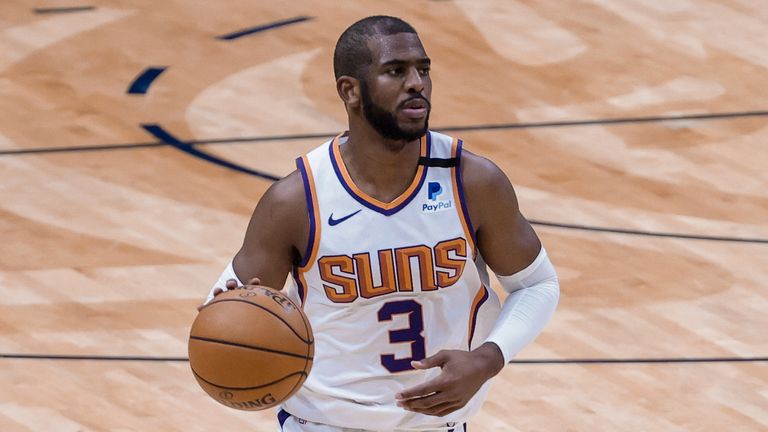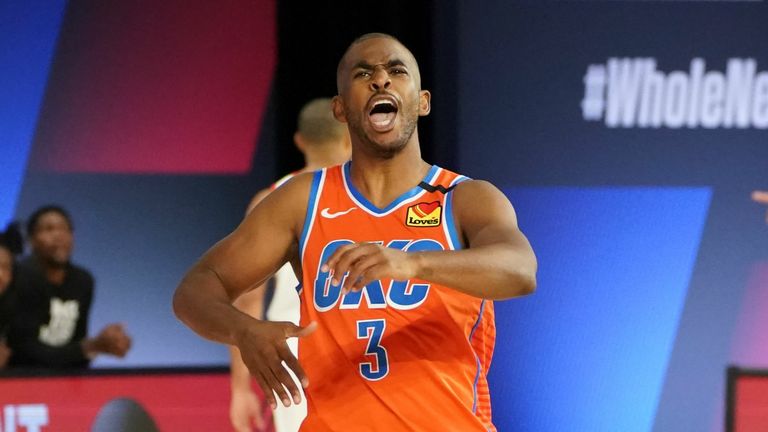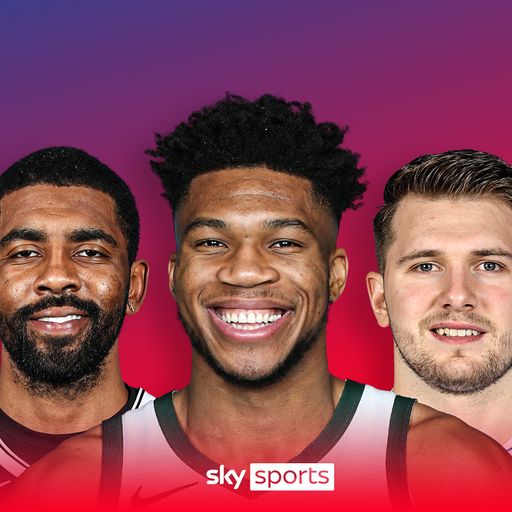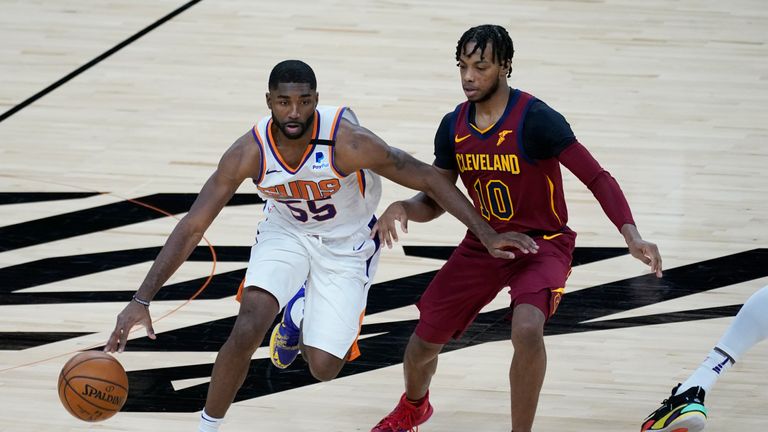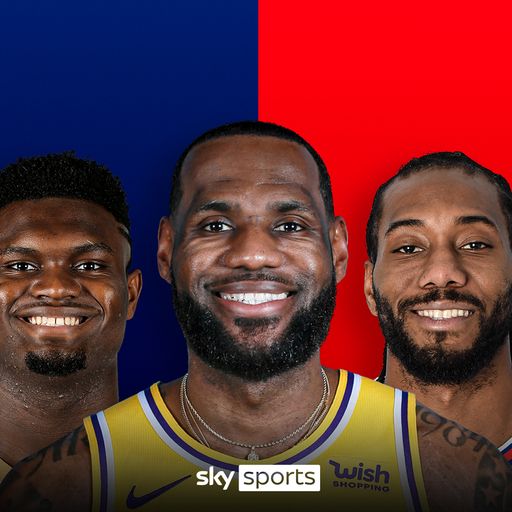Chris Paul, Phoenix Suns must shift to win-now mode to maximise final years of the master floor general
Coverage of the NBA continues on Wednesday night as the Milwaukee Bucks take on the Phoenix Suns, join us at 3am live on Sky Sports Main Event and Sky Sports Arena
Wednesday 10 February 2021 11:18, UK
Chris Paul has proved a lot of people wrong in recent years, because not many point guards survive beyond the age of 32. Isiah Thomas of the Detroit Pistons retired at that age. Walt Frazier's production fell off a cliff in his final two seasons after that age.
Kevin Johnson retired at 32 and returned for one more season before realising he should have stayed on vacation. Tim Hardaway was passable until 34 but did not manage much in his final few years. And while Allen Iverson was still putting up numbers, they felt like empty calories and he was causing more problems on the teams that signed him.
There are some floor generals that stand the test of time.
Oscar Robertson averaged 15 points, seven assists and four rebounds between the ages of 33 and 35. Gary Payton managed 19, seven and four and kept the Seattle SuperSonics more competitive than they should have been after the Finals appearance.
Jason Kidd was still hanging 10, nine and seven on dudes in his final years with the New Jersey Nets and early years with the Dallas Mavericks, and that is before winning a championship. Chauncey Billups’ 17 points and five assists was still sought after by multiple teams. And Andre Miller was the consummate professional, averaging 12, six and three - basically his career averages - as a 33-35-year-old.
Trending
- Transfer Centre LIVE! 'Only a matter of time before Trent leaves for Madrid'
- Liverpool reject approach for Alexander-Arnold from Real Madrid
- Van Gerwen slams Wright: 'He talks so much nonsense'
- Papers: Zirkzee eyed by Juventus, Trippier set for Toon exit
- World Darts Championship schedule: Littler vs Aspinall on New Year's Day
- Arteta on title bid: If Liverpool slip, we'll be there
- Why have so many of the Golden Generation struggled in management?
- West Ham latest: Antonio leaves hospital: I'll be back soon
- Nev and Carra's teams of the season so far and 2025 predictions
- Brentford vs Arsenal preview: Frank has faith in back-up Valdimarsson
This list of point guards, however, were all 6'4 and taller. They had big bodies that were better equipped to deal with a more physical game as they got older. Typically this allowed them to move up to shooting guard as they slowed down - handing the reins over to quicker, younger players they could mentor.
There is a select number of point guards under 6'1 who survived to be productive deep into their 30s. Steve Nash was listed as 6'3, but played shorter, and averaged 16 and 10 between 33 and 35 while keeping the Suns in gruelling battles for the Conference Finals. But arguably the pinnacle of short, old point guards is John Stockton, who powered the Utah Jazz to the NBA Finals at that age, averaging 13 and 10.
Paul has rocked 16, seven and four between the ages of 33 and 35, and his career is beginning to take a turn from the second option on a championship contender - as he was with the Houston Rockets - to the sage veteran who led a young Oklahoma City Thunder squad to a playoffs they had no right appear in last season.
This year, OKC have been dismantled without him. After missing the post-season in 2019-20, the Phoenix Suns have already benefitted from his steady leadership and are jostling for home court advantage in the playoffs.
It is clear he still has a lot to offer but before the playoffs begin CP3 will be 36 years old, finishing off his 16th regular season. He will earn $44 million in the last year of his contract during 21/22.
If they want to make the most of the productive time Paul has remaining, it needs to be this year or the next.
Can CP3 actually win?
The problem with relying on Chris Paul is that he hasn’t won anything. He has never even reached a Conference Finals.
It’s not that you wouldn’t consider Paul to make winning plays - he has had a positive +/- in the clutch (his teams have scored more than their opponents in the last five minutes) during every season of his career before now - but when he retires, he might fall into the category of ‘great players who couldn’t get it done’ alongside the likes of Karl Malone and John Stockton, Patrick Ewing, and former Phoenix Suns greats Steve Nash and Charles Barkley.
Perhaps it is that luck has never been on his side or that he has simply played basketball in the same era as LeBron James, which was a big part of the problem for so many players in the 1990s with Michael Jordan was at his peak. But it is also incredibly difficult to lead a team to a championship as a point guard.
Tony Parker, Chauncey Billups, Dennis Johnson, JoJo White, Jerry West have all won the Finals MVP trophy, but Johnson and White were arguably playing just as much shooting guard as point in their respective Finals appearances, whilst Billups was on an incredibly balanced team and West’s LA Lakers didn’t even win the championship.
Which just leaves Parker, who arguably shouldn't have won it at all ahead of Tim Duncan in 2007.
Paul’s best bet to win a championship will be as a supporting point guard to a stud on a team of excellent role players, akin to Jason Kidd with Dirk Nowitzki on the Dallas Mavericks in 2011, or Kyle Lowry with Kawhi Leonard in 2019.
The good news is he's in the right place to do just that.
Devin Booker might find scoring easier than anyone in the NBA not named Kevin Durant or James Harden. The young Sun scored 70 points in one game during his sophomore year and has scored 40 or more 11 times in his five full seasons so far. Despite being one of the most offensively unstoppable guards in the past 20 years, he has yet to lead Phoenix to the playoffs.
Bad luck, injuries and an extended suspension to the team’s prospective star big man, Deandre Ayton, last season haven't helped, but it takes time to find the right system and pieces for a superstar.
Booker was regularly playing point guard before Ricky Rubio joined the team last year and the Suns then upgraded to Paul. Ayton has taken a big step as both a defender and a rebounder, and the roster is finally filling out.
Mikal Bridges has taken a leap in his third year, scoring 14 points, five rebounds and four assists. Those career highs are to be expected given that he is playing more minutes, but he is also shooting more threes at a better percentage than his previous years, as well as a career high in effective field goal percentage.
He is also becoming one of the better defenders on the team thanks to a large wingspan and smart footwork on that end of the court. Bridges can guard his own guy while helping and scrambling back quickly, and his long strides can beat them down the court after turnovers.
The Suns also have good depth at the center and guard position to back up Ayton and Booker respectively in Frank Kaminsky and E’Twaun Moore. Both of those players have earned this team wins in recent weeks - stepping up while others are out injured - despite sitting tenth and eleventh on the team in terms of minutes per game.
Kaminsky offers a different skillset to Ayton. He can attack from the perimeter as a legitimate three-point threat - shooting 41 per cent from distance - while also having an ability to put the ball on the floor, especially against other bigs. Moore only scored five points in 12 minutes in the fourth quarter of the game against the Cleveland Cavaliers earlier this week, but he was such an effective pest on defense that coach Monty Williams couldn’t take him out.
Second year Cam Johnson is still raw in spots, but he might be a full-time starter before the end of this season.
The rest of the roster includes the likes of Jae Crowder, who helped the Miami Heat reach the NBA Finals last season. Dario Saric is underrated as a four-year veteran with a good basketball IQ and can stay on the floor with good shooting. Cameron Payne has bounced around the league but is improving year on year and the same can be said for Abdel Nader.
This group of role players is probably still too young to be battling for a championship this season. The win over Cleveland earlier this week, however, showed that they can keep afloat while Paul is on the bench - but you’d expect that against the Cavaliers. It will be a different story against the Lakers or the Clippers in the second round of the playoffs. Rest should be prioritised if he is going to be available to lift his team this year and play beyond his contract at the end of next season.
Paul has only played 82 games once in his career and has broken down at the end of seasons in recent years when minutes have increased in the playoffs.
But on Tuesday, Paul was still barking at referees, calling out defensive assignments, dapping up teammates as they came to the bench and offering advice to players when they were waiting to go in.
If he can do as much teaching as possible on the court for the rest of this season and the next, the Suns could prove a lot of people wrong. They could be competitive at a high level and perhaps even compete for a Conference Finals spot.
If they fall short this season in the same way Paul has throughout his career, it might be time for him to become a permanent co-pilot who helps during periods of turbulence and awkward landings, handing over the controls to the star while he becomes an overqualified role player.
Should he do so, Paul can rest assured that it's a job that has seen other older point guards achieve championship success late into their careers.
